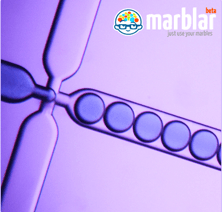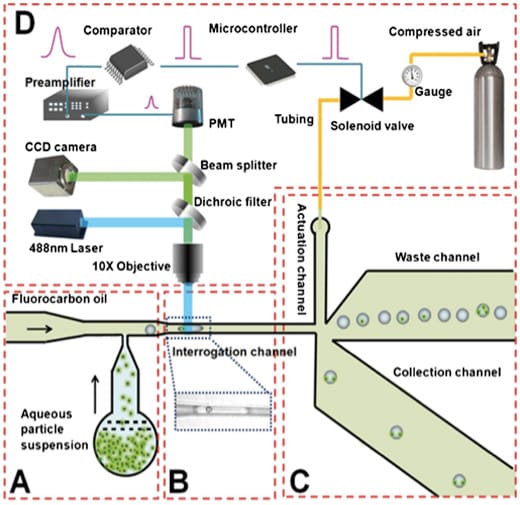Brainstorm and Find New Uses of Microfluidic Droplet Sorter Tech on Marblar

Virginia Tech in partnership with Marblar is calling for new ideas for the university’s recently developed fluorescence activated microfluidic droplet sorter technology.
Microencapsulation is the process of coating tiny droplets or particles to impart special properties. Droplets with encapsulated cells or beads have been widely used in biological and molecular engineering studies.
There are different methods available for producing microencapsulated beads or cells. However, these processes have significant randomness and imperfections associated with them, making it imperative to screen the droplets produced and separate the ones that are subject of interest.
Flow cytometry based FACS (Fluorescence Activated Cell Sorting) is one of the widely used techniques used for screening and sorting out cells or small particles until now. But when it comes to droplet microfluidics requiring sorting of droplets based on the number of encapsulated cells, FACS will be useless as it depends only upon the fluorescence intensity emitted by the droplets.
The fluorescence activated microfluidic droplet sorter developed by a team of Virginia Tech engineers solves the microencapsulat
The above diagram represents the device setup, while the following video shows the microfluidic droplet sorter in action.
This technology is predicted to have numerous potential applications in the field of cell biology, molecular engineering and other biomedical research. More than 16 entries describing potential new uses of this technology are already in; 28 days before the challenge deadline.
Either to conduct a detailed study of cellular kinetics, chemical synthesis or for biomolecule separation and purification or for studying enzyme kinetics or any other novel idea, Marblar is inviting you to brainstorm on its Droplet Orchestrator challenge. The submissions will be evaluated and the winner gets a small cash prize of $1,000 and a chance to work with the researchers in bringing the idea to a lab.




